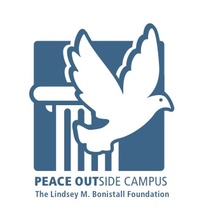
Dr. RaeAnn Anderson
Project Update: Empowering Indigenous College Women to Stop Rape: A Treatment Development Study
A new research paper focusing on survey findings on acceptability has been accepted! Click below to read, "Sovereignty For Your Body: Acceptability of Sexual Victimization Risk Reduction Interventions" by Dr. Anderson and her research team.
Their presentation has been accepted by the 2024 Society for Prevention Research Conference in Washington D.C. It is entitled "Exploring the Acceptability and Preferences of the Delivery of Alcohol Use Interventions among Indigenous College Students."
Finally, they are continuing their research! One of Dr. Anderson's mentees proposed an extension of the study for her dissertation, and it was accepted, along with a $10,000 grant to help fund it. They will be training new facilitators and starting recruitment for the Indigenized intervention this Fall!
| sovereignty_for_your_body_acceptability_of_sexual_victimization_risk_reduction_interventions.pdf |





 RSS Feed
RSS Feed
